Ras al Naqab on the Hejaz Railway
The Ras al Naqab station was built in the 1930’s in order to transfer potash from rail cars to trucks. These trucks then transported the phosphate over the Naqab Escarpment to Dabat Hannout some 3000 feet below. From there the trucks traveled via Humeima to Aqaba where the phosphate was loaded onto ships for export.
The Ma’an to Ras al Naqab line was abandoned in the 1970’s when the mining companies constructed a new train line that passed around the end of the Naqab escarpment and back through Wadi Rumm and then into Aqaba. The rail lines to Naqab were then removed, but the platform and storage facilities remain in Ras al Naqab to this day. Today Ras al Naqab is a sleepy Jordanian desert village. The old haj that runs the local store still remembers the hey-days of Naqab. The Government Rest House and Police Station have been taken over by the AnNour Clinic for Chest Diseases. Visitors are welcome to drive up to the clinic and photograph the view over the edge of the cliff. (Below) As you can see, the 3000 foot drop made it impossible for a rail line to go farther.
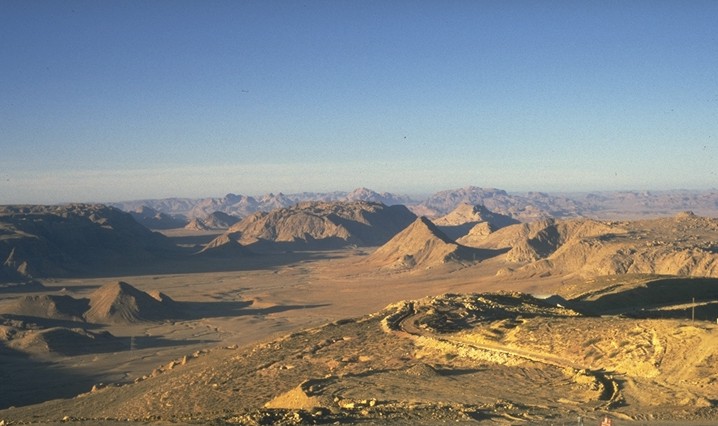
Ras al Naqab is on the edge of a high escarpment where the high desert meets the low desert. This proved to be a challenge for the Hejaz Railway.
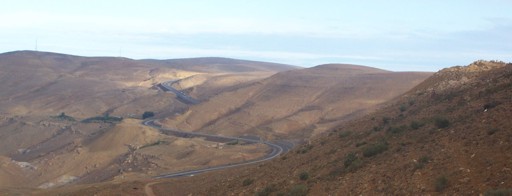
The new highway over the Naqab Escarpment is several kilometers east.
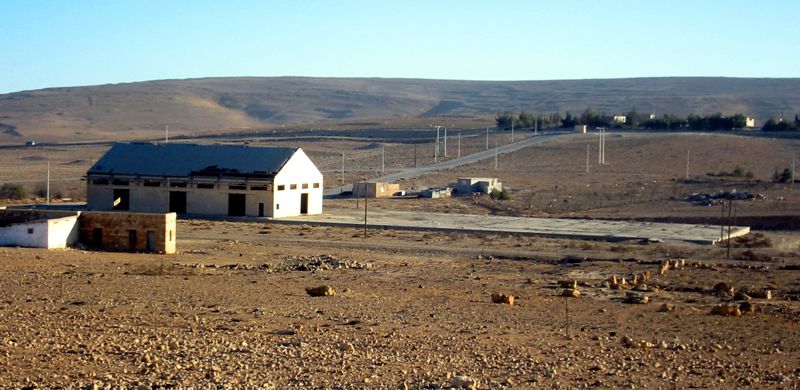
Goods shipped by rail were unloaded onto the large platform so trucks could reload them and drive them down the highway, over the escarpment to Aqaba some 80 km below.
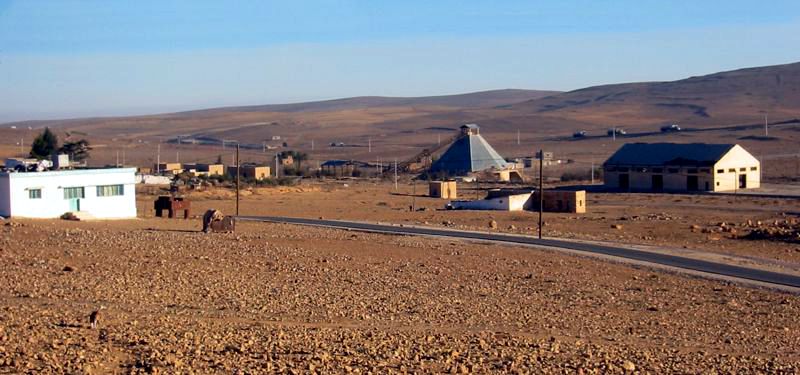
Even phosphate was dumped into storage, and loaded onto trucks.
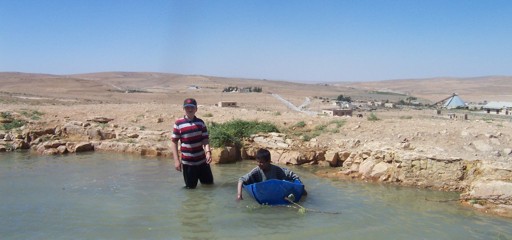
Boys playing in the water reservoir. To the far right you can see the old phosphate storage facilities.
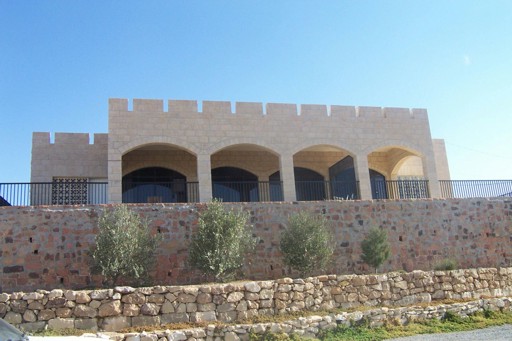
A Government Rest house was built on the edge of the cliff, so that travelers could stop for something to eat. Today the rest house is a clinic for chest diseases. Tourists are free to stop by and photograph the desert below.
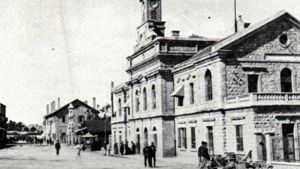
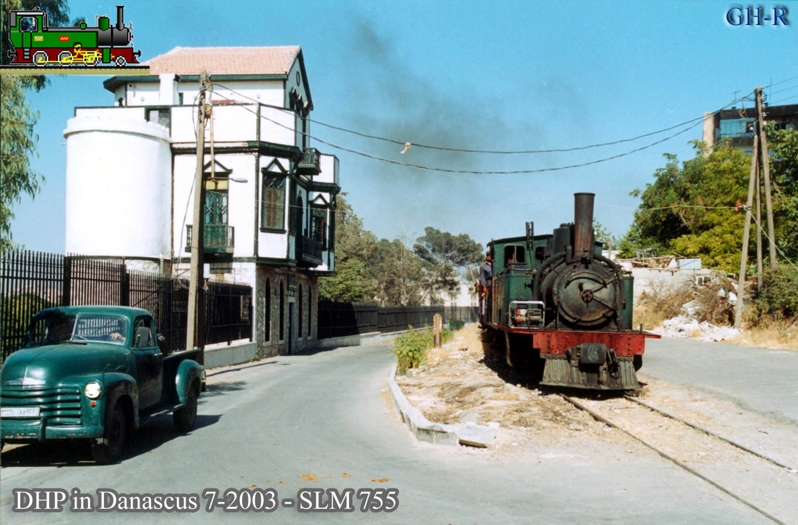
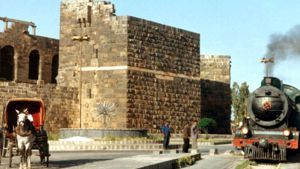
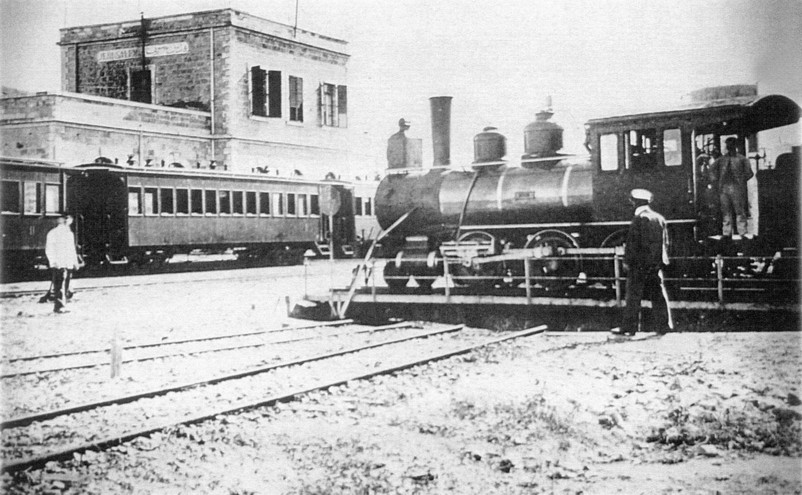
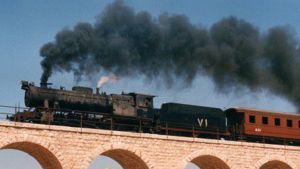
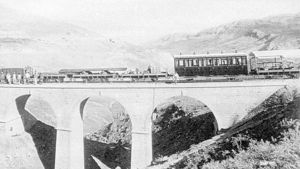
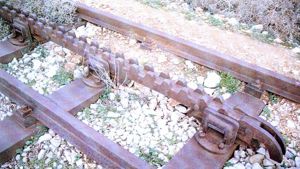

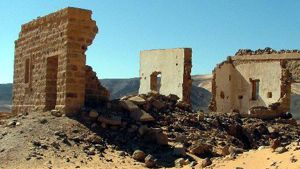
Page Discussion
Membership is required to comment. Membership is free of charge and available to everyone over the age of 16. Just click SignUp, or make a comment below. You will need a user name and a password. The system will automatically send a code to your email address. It should arrive in a few minutes. Enter the code, and you are finished.
Members who post adverts or use inappropriate language or make disrespectful comments will have their membership removed and be barred from the site. By becoming a member you agree to our Terms of Use and our Privacy, Cookies & Ad Policies. Remember that we will never, under any circumstances, sell or give your email address or private information to anyone unless required by law. Please keep your comments on topic. Thanks!